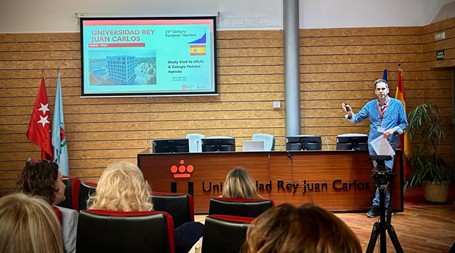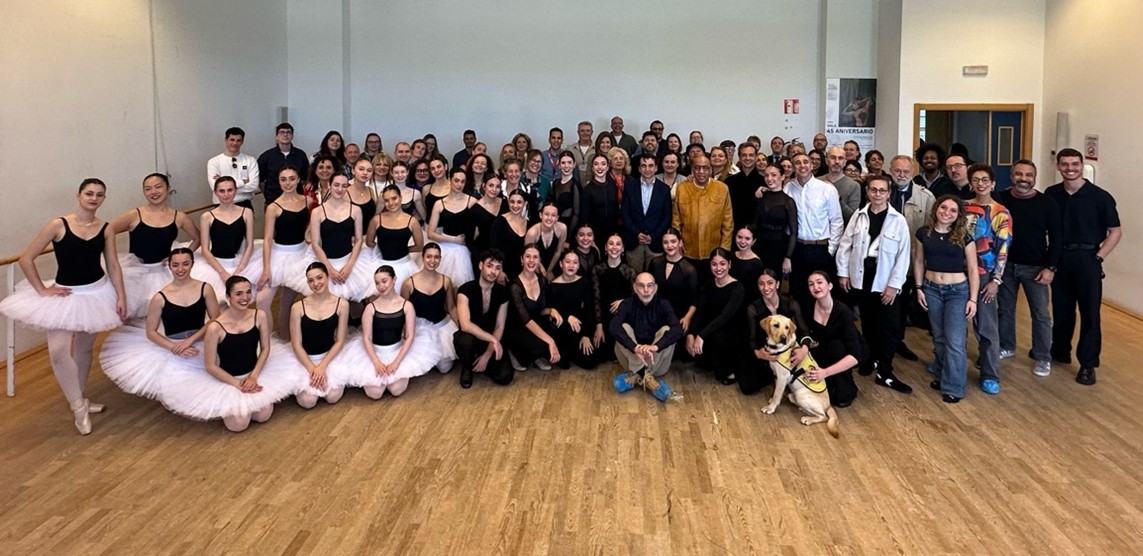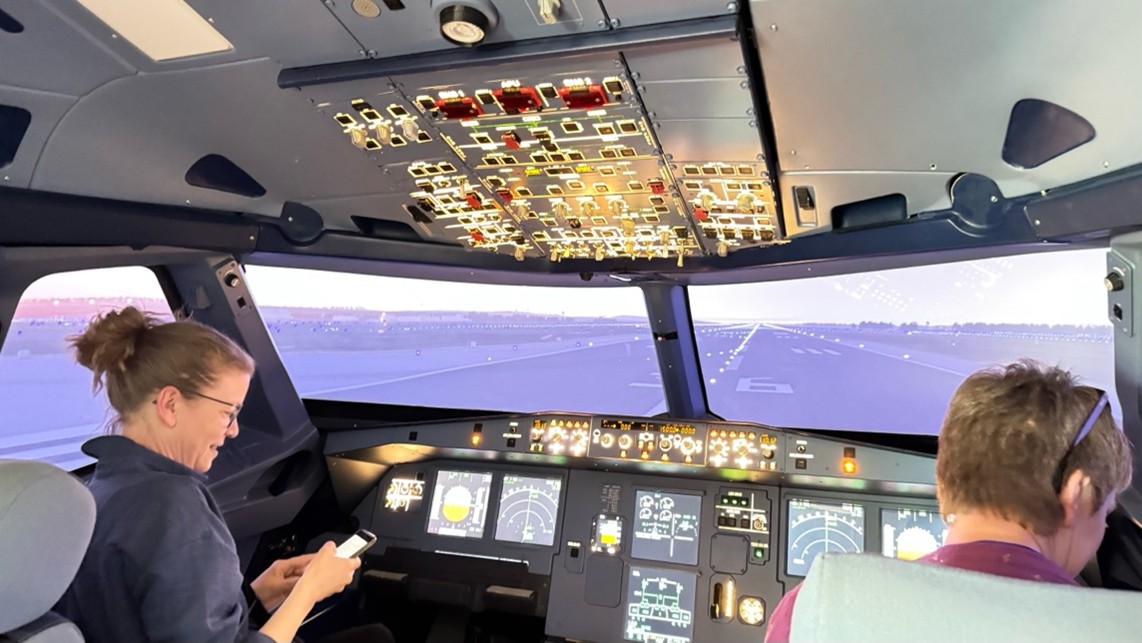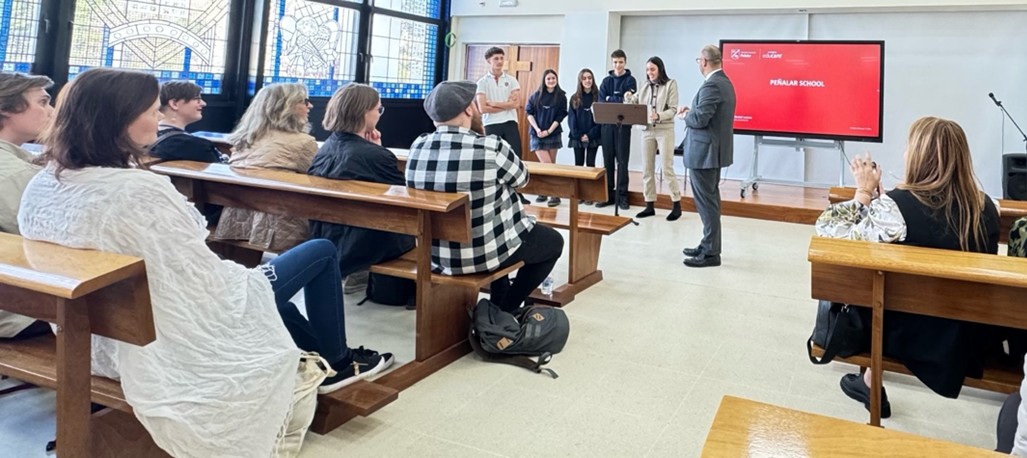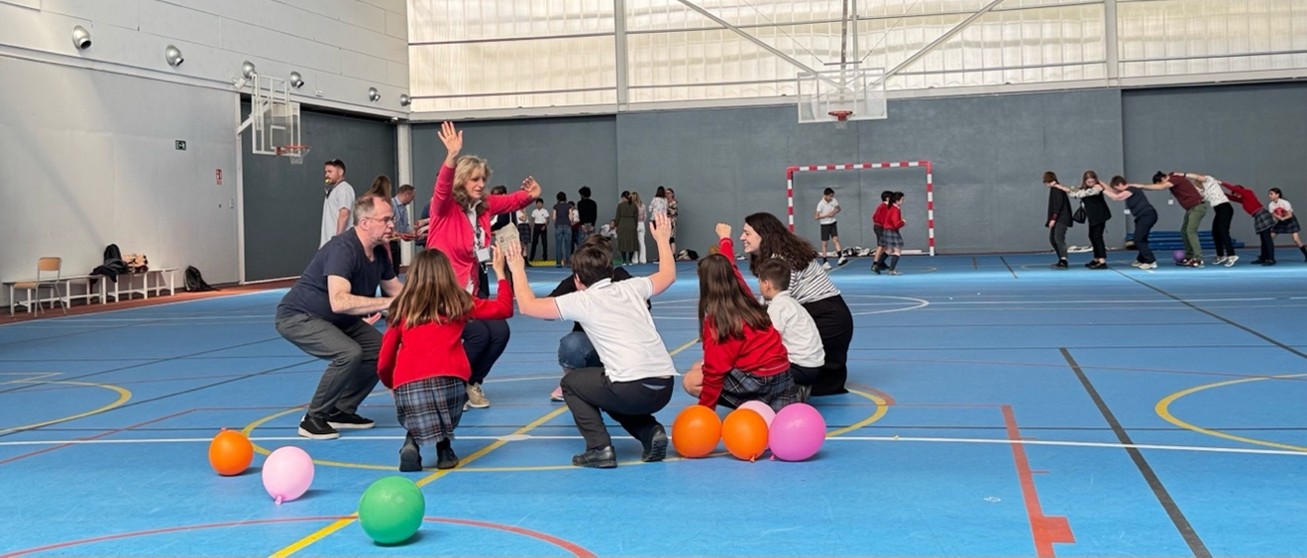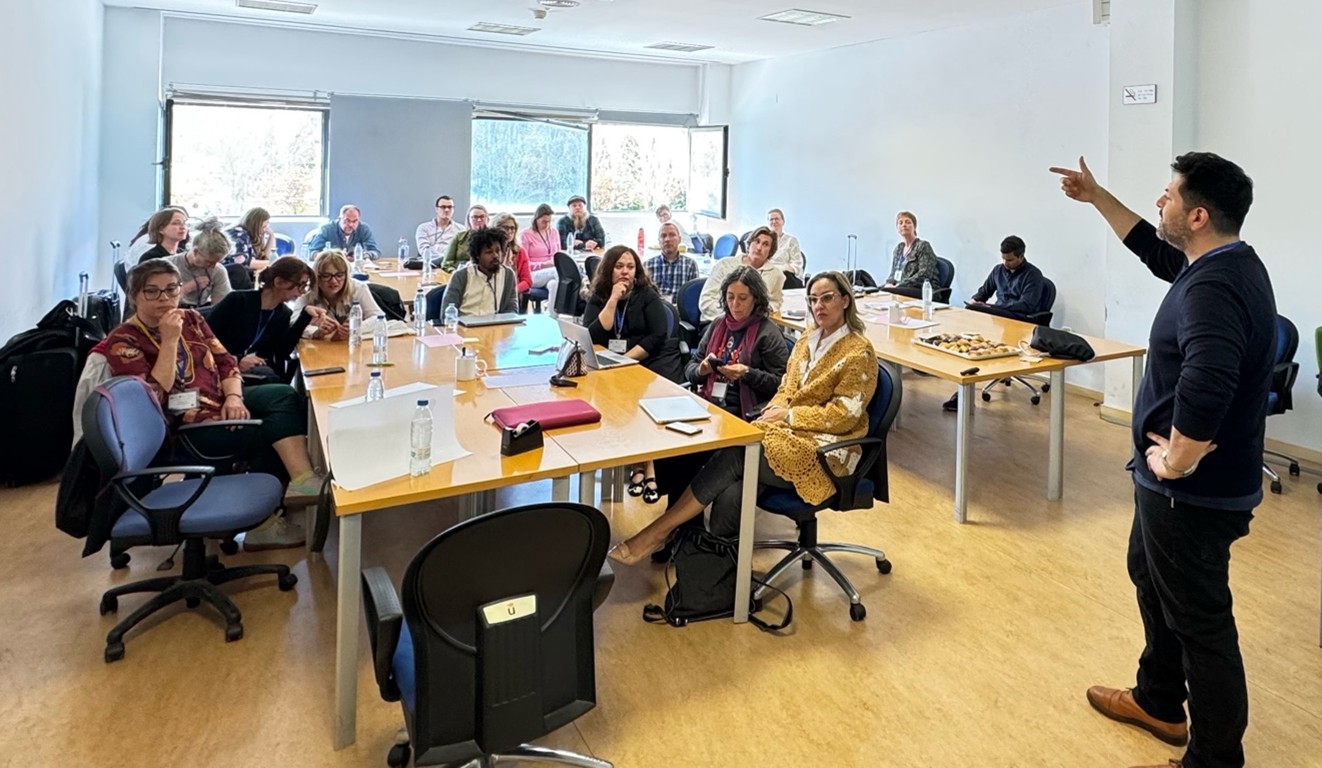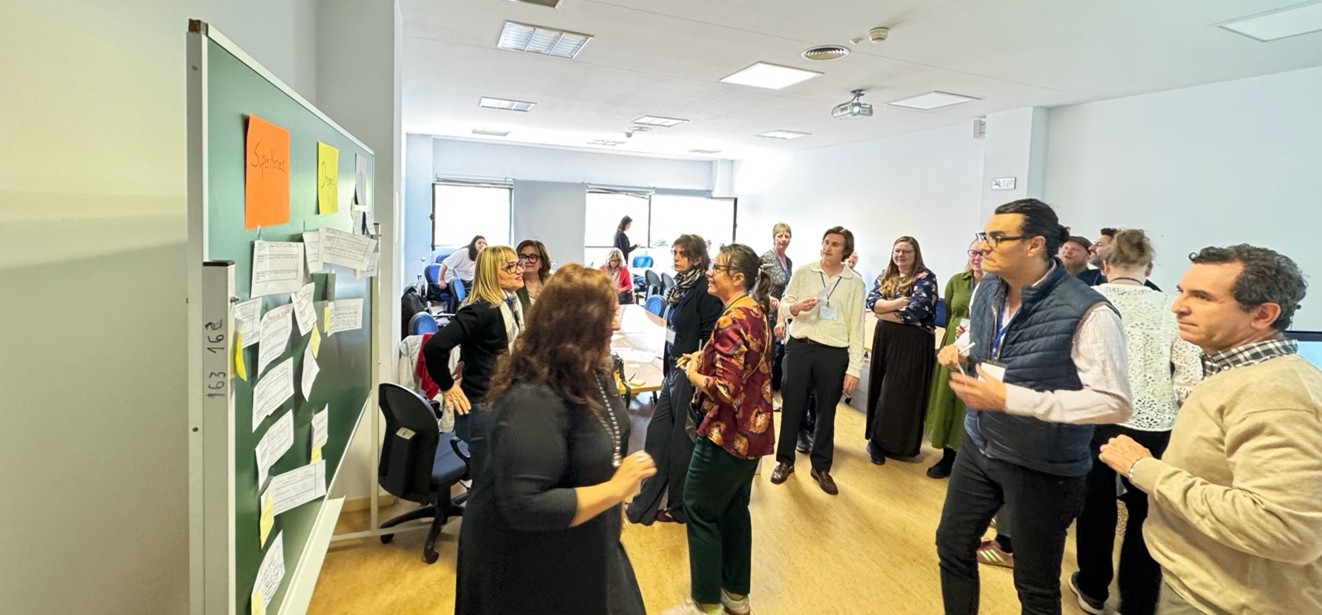This website use cookies to ensure you get the best experience on our website
Spain: Exploring Entrepreneurship Education with the 21st Century European Teachers
Project partners from Belgium, Denmark, Finland, Italy, Romania and Spain met at two different locations at Universidad Rey Juan Carlos (URJC) and Colegio Peñalar over the course of three days, from April 8th to 10th 2025 in Madrid, Spain.
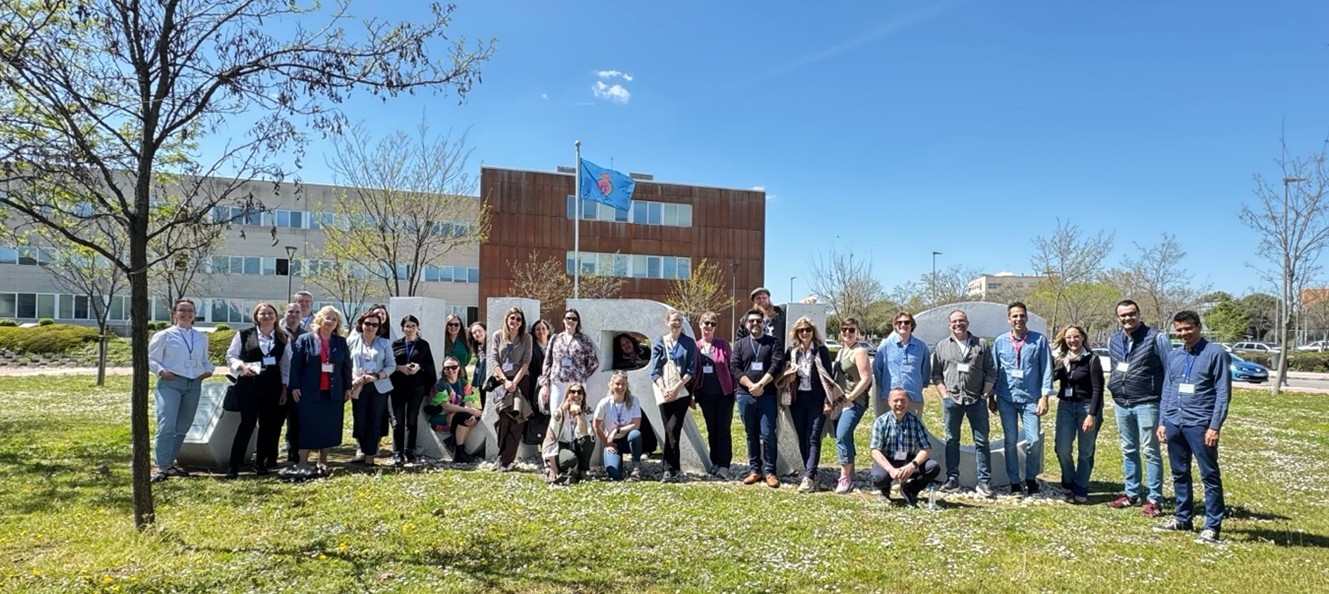
This fifth Co-education development lab was dedicated to the topic of entrepreneurship education and the implementation of the co-creation model to the Spanish education context. The event began in the School of Education, Sports and Interdisciplinary Studies at the Universidad Rey Juan Carlos in Fuenlabrada (Madrid) where partners had a chance to learn about the Spanish school system and teacher education programs that focus on early childhood education, primary education, secondary education and vocational training in addition to learn about the specifics of the education internships and placements at URJC.
Following the educational morning briefings, participants visited the “Alicia Alonso” Higher Institute of Dance to see our URJC students performing contemporary, classical and Spanish dance and had also the opportunity to experience the “EIF Teaching Laboratories” where teacher educators enjoyed the use of flight simulators on campus.
On the second day, participants enjoyed a one-day immersive experience focused on entrepreneurship education. This event was hosted by Colegio Peñalar in Torrelodones (Madrid), a school recognized as one of the top 100 schools in Spain for its academic performance, personalized education approach, and focus on fostering student’s personal and social growth.
Throughout the day, participants engaged in interactive sessions, classroom observations, and collaborative discussions that explored how entrepreneurial thinking can be nurtured in educational environments. The program highlighted student-led initiatives and teacher-designed activities that encourage creativity, critical thinking, and initiative skills for thriving in the 21st century.
Participants also had the opportunity to learn about the school’s educational philosophy and values, as well as its internship program developed in collaboration with various universities in Madrid. This program provides future teachers with hands-on experience and professional growth opportunities in a dynamic and real-world setting.
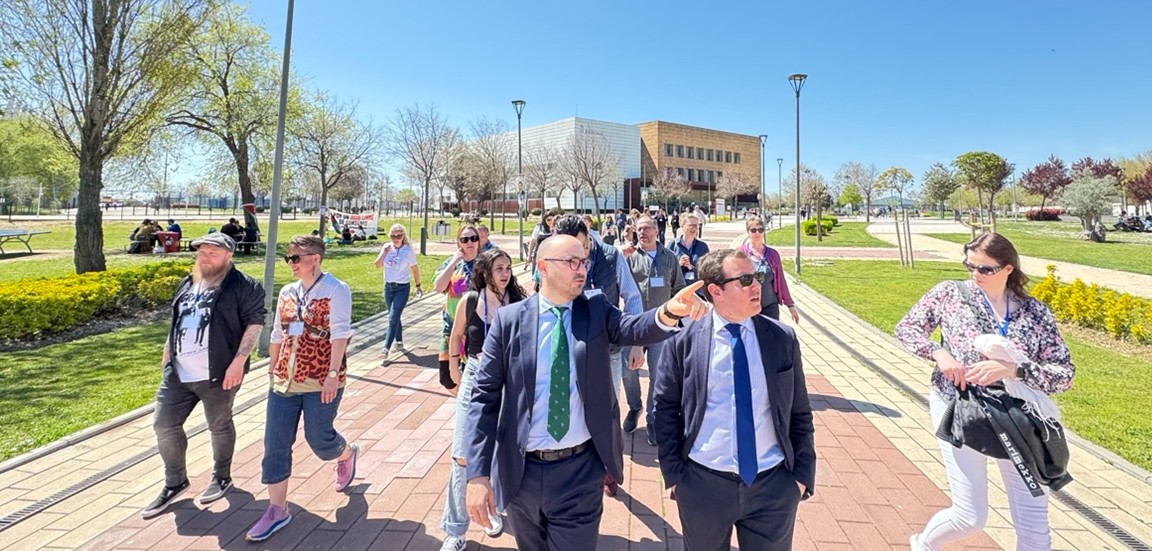

A highlight of the day was a physical education session in which students took on the role of trainee teachers, leading and guiding the activity where visiting partners took on the role of students. This practical experience showcased the students’ leadership, communication, and organizational skills in a playful yet structured context.
The group enjoyed a well-deserved break to taste Spain’s traditional dish “paella” which offered not only a cultural and gastronomic experience but also the energy to continue with the day’s agenda. In the late afternoon, participants embarked on a cultural tour through the municipality of Torrelodones. During the excursion, students again stepped into the role of guides, accompanying the Erasmus+ Teacher Academies group and leading a tour of the town’s most iconic landmarks.
The day concluded with a shared dinner at Madrid’s iconic Mercado de San Miguel, where the team came together to reflect and connect in a relaxed atmosphere. It was a day full of enriching experiences, where schools and universities from different countries exchanged ideas, shared practices, and explored how entrepreneurship, internship programs, and national education systems can support the development of entrepreneurial skills—from the early years of schooling to students’ entry into the workforce.
The final day was dedicated to reflecting on the experiences of the previous days. Participants focused on analyzing and evaluating the iteration, and shared recommendations to further enhance our 21st-century skills.
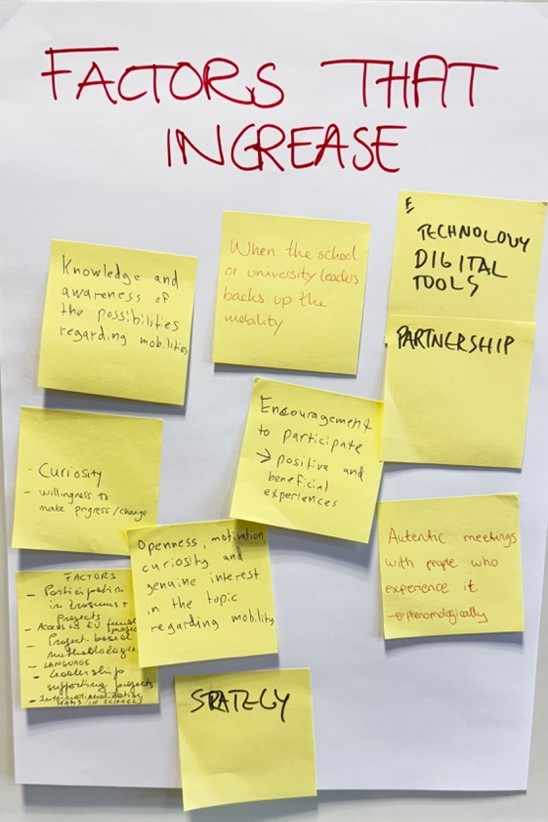
Teachers, student teachers and teacher educators worked together in mixed country group activities to support team collaboration, information sharing and continue creating a culture that keeps project members enthused and engaged.
Following this, the participants attended three parallel sessions to investigate obstacles to mobility, factors that increase mobility and benefits of mobility for in-service and pre-service teachers. That way this Erasmus+ Teacher Academy can start gathering useful information to start creating mobility models for the upcoming blueprints. After gathering the evidence and putting it on display for the participants to read, share and reflect, it ended with a final Spanish lunch that allowed everyone to connect one last time and then it was time to say our goodbyes and start travels back home.

Funded by the European Union. Views and opinions expressed are however those of the author(s) only and do not necessarily reflect those of the European Union or the European Education and Culture Executive Agency (EACEA). Neither the European Union nor EACEA can be held responsible for them.
